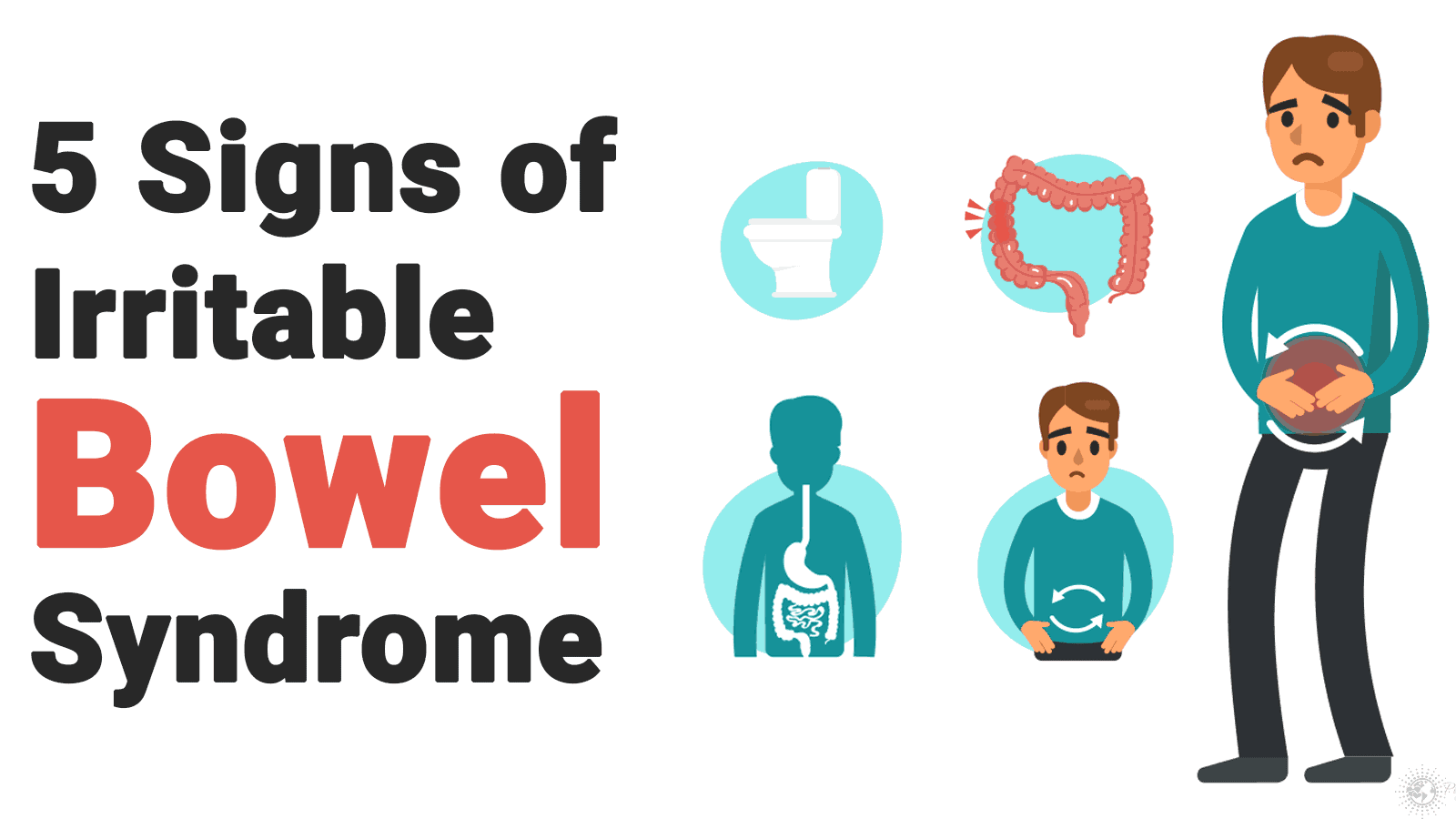What’s irritable bowel syndrome?
Irritable bowel syndrome (IBS) is a chronic medical condition that affects the large intestine, or colon. While IBS doesn’t pose a threat to long-term health, its symptoms can be quite severe.
The good news is that IBS isn’t linked with an increased risk of colon cancer unlike other inflammatory bowel conditions, e.g., Crohn’s disease and ulcerative colitis.
In this article, we’re going to talk about 5 common signs, or symptoms, of IBS. It’s important to understand this about the disorder, per the NHS (UK):
“(Symptoms) vary between individuals and affect some people more severely than others. (Symptoms of IBS) tend to come and go in periods lasting a few days to a few months at a time, often during times of stress or eating certain foods.”
First, the five most common symptoms of Irritable Bowel Syndrome
Let’s take a look at how to live a lot more comfortably with IBS, simply by changing some up some old habits!
1. Abdominal pain and/or cramping
The pain symptoms of IBS are felt mostly in the abdomen. IBS pain and discomfort are often described as crampy, or as a common achy feeling. People with IBS often experience “sharp, dull, or (gas-like) pains” as well.
Relief of abdominal pains and cramps following a bowel movement (BM) is typical.
HELP!: Incorporate a moderate about of soluble fiber in your diet. Excellent sources include barley, whole wheat bread, brown rice, dried fruits, whole-grain pasta, and oats!
2. Sudden changes in bowel habits
As mentioned, Irritable bowel syndrome symptoms tend to be intermittent. That is, IBS sufferers won’t always feel gut trouble. Then all of a sudden, the stomach rumbles and tumbles. (Think of Jeff Daniels trip to the bathroom in “Dumb and Dumber.” This hilarious/crude scene portrays this IBS tendency quite accurately – with a smidgen of drama.)
Once again, try implementing some fiber into your diet if you’re not currently doing so. A well-balanced diet is crucial to combating IBS.
3. Struggles with anxiety and stress
Doctors don’t know what causes Irritable bowel syndrome, though anxiety and stress are thought to worsen – and perhaps trigger – the condition. Per WebMD, work, commuting, relationship problems, financial troubles, and feelings of overwhelm are often cited by IBS patients.
Help!: The solution is to try and relax! It’s important to engage in activities that you love, whatever those may be. Additionally, if IBS is affecting your work or relationships, consider taking up meditation or therapy to help you cope. There are plenty of free resources available online, so do some digging!
4. Swelling or bloating in the stomach area
Of all IBS symptoms, swelling or bloating of the abdomen may be the most uncomfortable. Worse, this feeling may persist following a BM (though it’s more common to feel relief.)
Swelling and bloating might be your stomach’s way of saying “I’ve got something in here I shouldn’t!” With that in mind, do you know what food types trigger stomach upset? For example, does your stomach react differently to spicy, starchy, or sweet foods? Try thinking about this and adjusting your diet accordingly.
5. “Other” triggers
Though we commonly associate IBS with dietary habits, other factors are known to exacerbate symptoms. It’s not uncommon for someone taking certain medicines to feel worse, for example. Menstrual cycles often create more severe symptoms in women with irritable bowel syndrome, as well.
HELP!: Antibiotics and antidepressants are two classes of drugs that can make IBS symptoms worse. The latter is frequently cited as a problem among IBS patients. SSRI drugs, such as Prozac and Zoloft, may induce diarrhea. Older types of antidepressants (pre-2000’s) can also cause constipation problems and IBS.
Birth control medication may also produce aggravated irritable bowel syndrome symptoms. Known side effects of birth control pills, including upset stomach and bloating, may get worse in IBS patients.


















